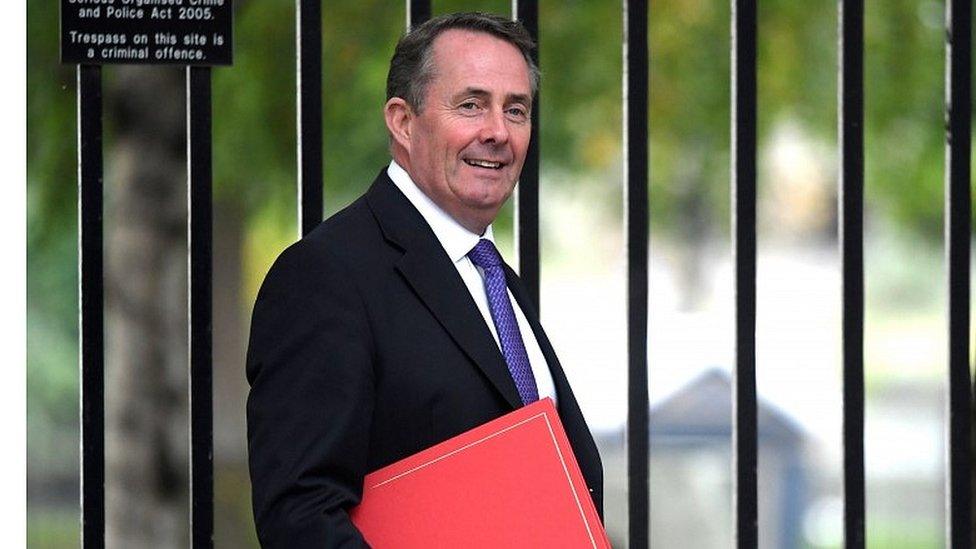Brexit: EU gives May two weeks to act on divorce bill and Ireland
- Published
- comments
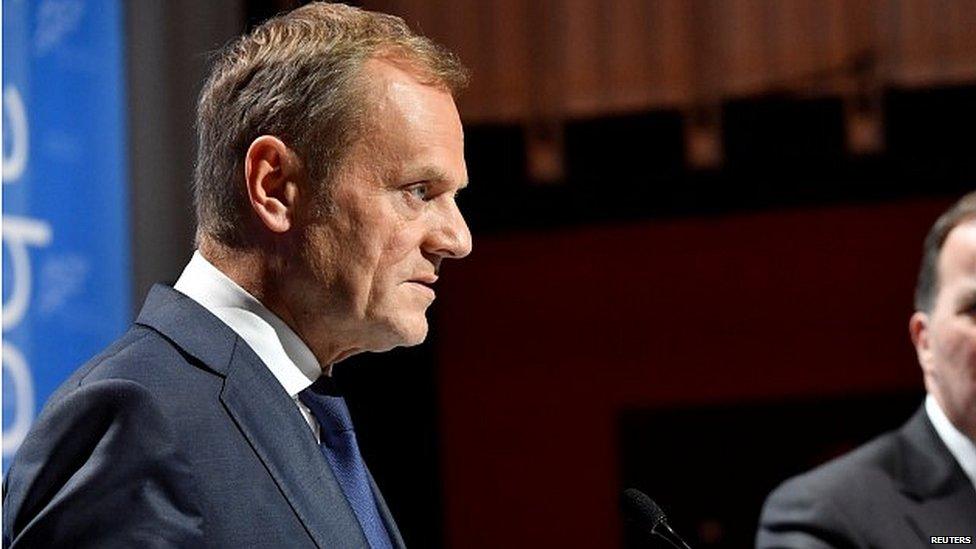
Mr Tusk said progress on citizens' rights had not been mirrored in other areas
Theresa May has been told she has two weeks to put more money on the table if the EU is to agree to begin Brexit trade talks before the end of the year.
EU Council President Donald Tusk said he was "ready" to move onto the next phase of Brexit talks, covering future relations with the UK.
But he said the UK must show much more progress on the "divorce bill" and the Irish border by early next month.
Mrs May said "good progress" was being made but more needed to be done.
The talks are currently deadlocked over the UK's financial settlement, citizens' rights and Ireland with Irish PM Leo Varadkar accusing the UK of not "thinking through" the implications of Brexit for his country.
A week ago, the EU's chief negotiator Michel Barnier informed his UK counterpart David Davis he had a fortnight to spell out in more detail what he was prepared to pay the EU to "settle its accounts" and to clarify how trade between the Republic and Northern Ireland and security across the 310 mile border would be preserved after the UK leaves the single market and customs union.
After holding talks with Mrs May on the margins of a jobs summit in Sweden, Mr Tusk repeated the message, saying "much more" progress was needed on these two issues if he was to recommend to EU leaders at their next meeting on 14 December to give the green light to the next phase of talks.
He said he would meet Mrs May in a week's time to assess progress but warned time was running out for a breakthrough before the end of 2017.
"We will be ready to move on to the second phase already in December," he said.
"But in order to do that we need to see more progress from the UK side.
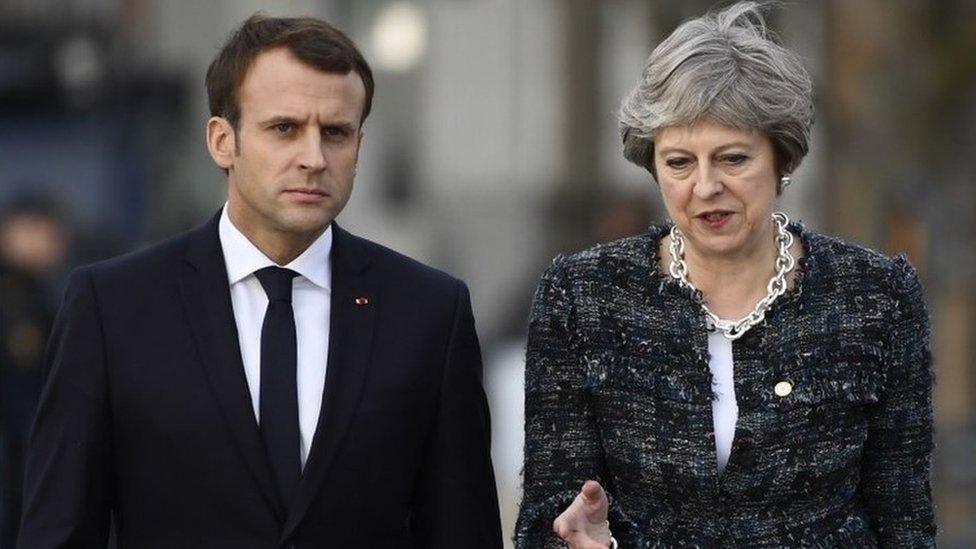
The UK needs the approval of all 27 EU nations if it is to begin the next phase of talks
"If there is not sufficient progress by then, I will be ... not be in a position to propose new guidelines on transition and the future relationship at the December European Council....I made it very clear to the Prime Minister May that this progress needs to happen at the beginning of December at the latest."
Before leaving the event in Gothenburg, Mrs May said that the two sides had to "work together" to reach a point where the EU believed sufficient progress had been made to open up trade discussions.
She rejected claims that the talks were in limbo and restated her priority was to talk as soon as possible about her goal of a future "deep and special" trade and economic partnership.
"We're clear and I'm clear that what we need to do is move forwards together," she said.
The UK has said it will honour its existing financial obligations by ensuring no EU nation is worse off during the current budgetary period ending in 2020, a sum reported to be in the region of £20bn.
But the EU wants the UK to go further and contribute to what they say are longer-term liabilities, such as regional development spending and pension payments for British officials working for the EU and retired staff.
David Davis: "Nothing comes for nothing" in negotiations
Asked whether Mrs May had to stump up more money to pave the way for trade talks, Swedish PM Stefan Lovren said Britain "needs to clarify what they mean by their financial responsibility".
French President Emmanuel Macron said the unified position agreed by all 27 other EU members earlier this year had not changed and talks on future relations would not commence "until the divorce has been settled".
Mr Varadkar, who also held a bilateral meeting with his British counterpart, said he was prepared to wait until next year for "further concessions" from the UK in a number of areas.
He said he wanted binding guarantees that there would be no physical checks at the border after the UK leaves in March 2019, dismissing as inadequate verbal assurances that technological advances will help ensure the continued free and safe movement of people.
"What we want to take off the table before talking about trade is the idea that there would be any hard border, physical border, or border resembling the past in Ireland," said the Irish PM.
"I think it would be in all of our interests that we proceed to phase two in December," he added.
"But it's 18 months since the referendum. Sometimes it doesn't seem like they've thought all of this through."
Some Tory MPs believe the UK should flex its muscles and walk away from the talks unless the EU is more accommodating, arguing the EU has as much to lose as the UK from not agreeing a trade deal.
- Published16 November 2017

- Published13 November 2017
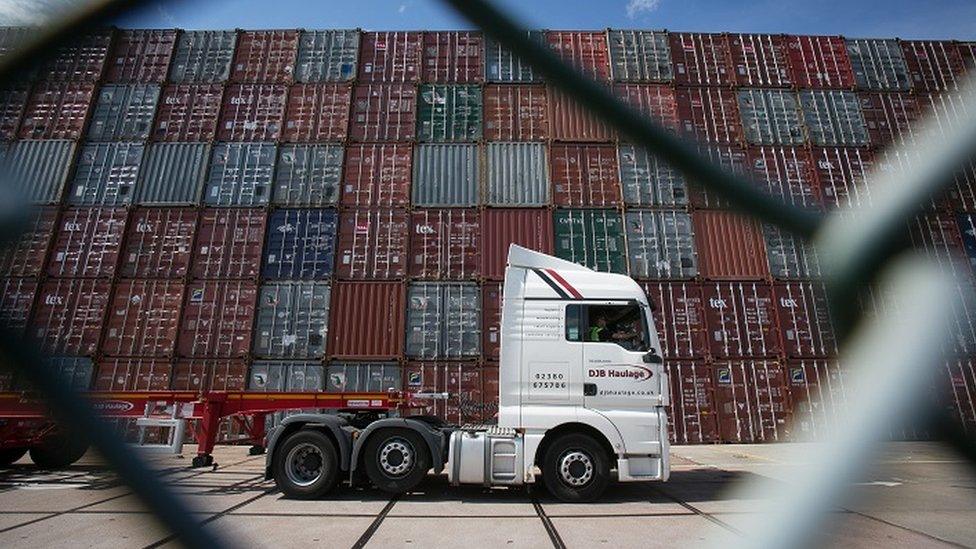
- Published7 November 2017
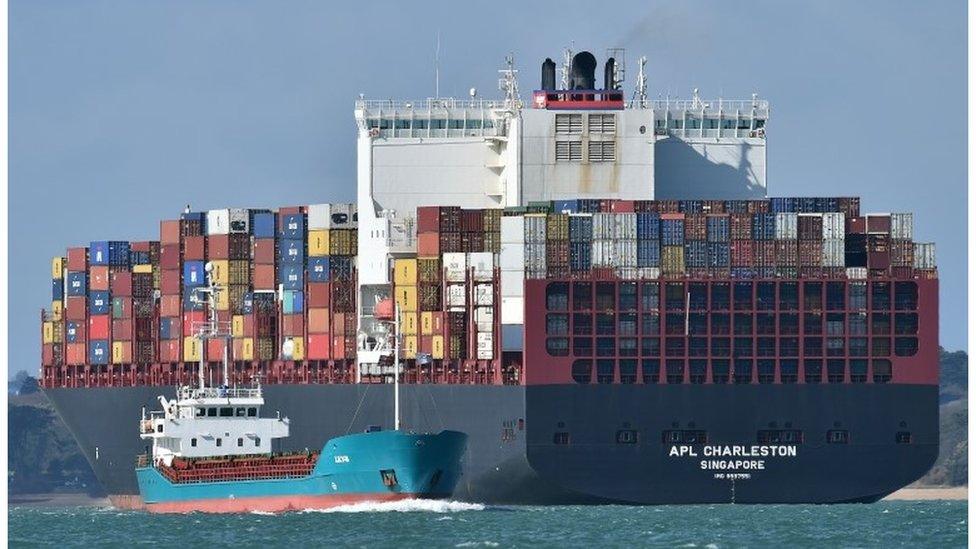
- Published1 November 2017
